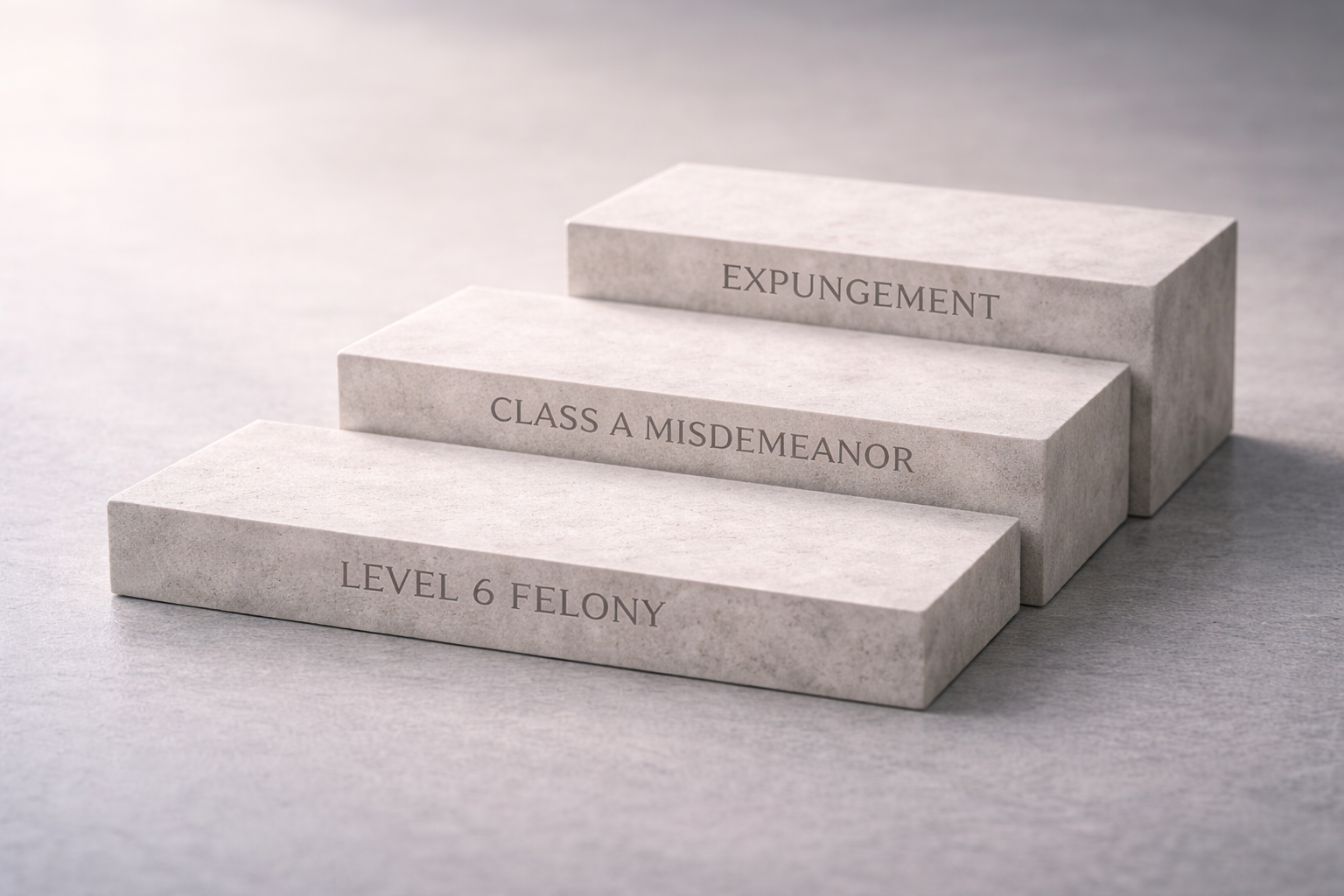What Is the Burden of Proof in a Criminal Case?
In any criminal case in Indiana, the burden of proof is what determines whether someone is found guilty or not guilty. The prosecution carries this burden, meaning they must present enough credible evidence to prove the defendant’s guilt beyond a reasonable doubt. But what exactly does that mean, and how does it compare to other legal standards of proof used in Indiana courts?
Understanding the Burden of Proof in Criminal Cases
What Does "Beyond a Reasonable Doubt" Mean?
In criminal trials, the highest standard of proof is beyond a reasonable doubt (BRD). This means:
The evidence must be so strong that no reasonable person could doubt the defendant’s guilt.
Any doubt that exists must be based on reason and logic, not speculation.
The prosecution must prove every element of the crime beyond a reasonable doubt.
✔ Key Takeaway: If the jury or judge has any reasonable uncertainty, they must return a not guilty verdict.
🔗 Related Read: Signs of a Weak Criminal Case
Other Standards of Proof in Indiana Cases
While criminal cases require proof beyond a reasonable doubt, other legal matters in Indiana use different standards of proof.
1. Preponderance of the Evidence (Used in Civil Cases & Some Criminal Hearings)
The lowest burden of proof—used in civil lawsuits and some criminal matters like probation violations.
Means "more likely than not" (51% certainty) that a claim is true.
Example: In a civil lawsuit for personal injury, the plaintiff only has to prove that the defendant was more likely than not responsible for their injuries.
✔ Comparison to BRD: Much easier to prove than criminal guilt. A case that might fail in criminal court could still succeed in civil court.
2. Clear and Convincing Evidence (Used in Family & Probate Court)
A higher burden than preponderance of the evidence, but lower than beyond a reasonable doubt.
Means the evidence "highly and substantially" supports a claim.
Used in cases involving:
Termination of parental rights
Mental health commitments
✔ Comparison to BRD: This standard requires strong proof, but doesn’t eliminate every reasonable doubt like in criminal trials.
🔗 Related Read: Indiana Criminal Defenses: What Are Your Legal Options?
3. Probable Cause (Used in Arrests & Search Warrants)
The lowest burden of proof in criminal law.
Means there is a reasonable belief that a crime was committed and the suspect was involved.
Used by police to:
Arrest someone
Obtain a search warrant
Bring formal charges
✔ Comparison to BRD: Just because probable cause exists for an arrest, it doesn’t mean a conviction will happen—the prosecution still has to prove guilt beyond a reasonable doubt.
4. Reasonable Suspicion (Used in Traffic Stops & Police Encounters)
Even lower than probable cause.
Allows police to briefly detain someone if they have a reasonable belief that a crime is occurring.
Example: A police officer stopping a car for swerving lanes to investigate potential DUI.
✔ Comparison to BRD: This is only enough for an officer to conduct a stop, not to convict someone in court.
Why the Burden of Proof Matters in Criminal Defense
The higher the burden of proof, the more protection a defendant has. Since criminal convictions carry serious penalties, the law requires the prosecution to remove all reasonable doubt before convicting someone.
If you are facing criminal charges, your defense attorney’s job is to:
✅ Challenge weak evidence that doesn’t meet BRD.
✅ Expose constitutional violations that could suppress evidence.
✅ Argue for a lesser burden of proof in certain hearings (like pre-trial motions).
Get Strong Legal Defense at Vining Legal
At Vining Legal, we:
✔ Hold prosecutors accountable to the highest burden of proof.
✔ Challenge weak evidence and unreasonable police actions.
✔ Fight for dismissals, plea reductions, or not guilty verdicts.
📞 Call or text (317) 759-3225 to schedule your consultation today. Let’s discuss your case and start building your defense.
Or, if you prefer, use our online consultation form to request an appointment now.





